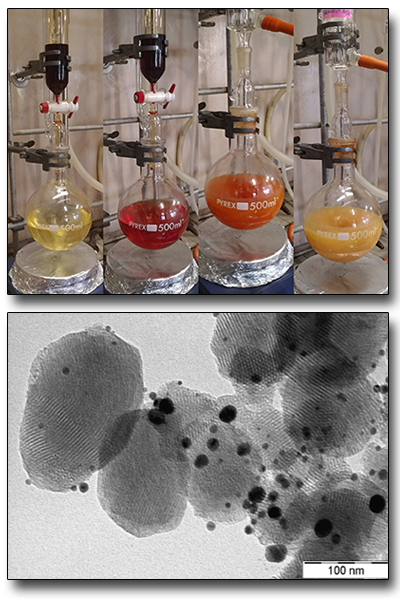ISM has been working since many years in the design and development of organic, hybrid and (bio)ceramic materials regarding cutting-edge highly sustainable technologies, such as the latest generation of photovoltaic and flexible electronics and applications of the circular economy paradigm through the development of innovative decarbonization catalytic processes.
In this context are included the synthesis of: i) variously functionalized organic and metalorganic molecular semiconductors with extended conjugation (e.g. phthalocyanines, porphyrins, perylenes and thiophenic derivatives) obtained through scalable and sustainable chemical processes that minimize the use of toxic solvents and the production of waste materials; ii) hybrid and inorganic perovskites of various compositions; iii) zeolitic, ceramic and bio-glasses bulk materials by hydrothermal, sol-gel and batch processes.
The know-how and facilities currently available at the ISM Montelibretti branch, allow: i) the design and synthesis of either well established or original target materials, as well as their purification by extractive, chromatographic and thermal techniques; ii) depositions on substrates of various kind of molecules and hybrid solutions through spin-coating and Langmuir-Blodgett techniques, with regard to their characterization the optical and charge transport properties of the resulting films can even be performed; iii) the preparation of catalysts for energy conversion applications such as from waste (e.g. biomass) such as HDO of lignin, environmental decarbonization by direct capture of atmospheric CO2 or thermochemical H2O/CO2 splitting.
Organic and metallorganic synthesis Inorganic synthesis of porous materials by catalysis


 English (UK)
English (UK)  Italiano (Italia)
Italiano (Italia)